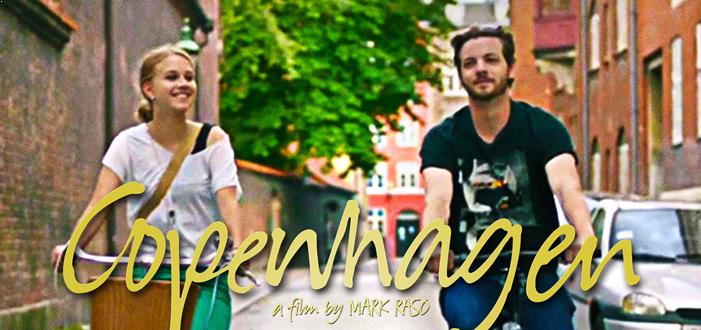
Copenhagen
Sometimes the past needs to be left in the past for a reason. That is what is discovered in Copenhagen by the lead protagonist, who, at the opening, is an ideally portrayed narcissist without a care in a world that does not serve him. This is a telling psychological hint at what the plot has in store for him, to explain that is why he is an ass-clown.
He and his friend arrive at Copenhagen as a pair in their late-20’s indulging in the twilight of irresponsibility, accomplishing what amounts to the Grand Tour these days for Americans with as much alcohol and sex as possible. But the story is not centered on this boyish fantasy of Europe as a land to plunder with eager nubile females waiting to be penetrated after sipping from overflowing liquor. It is centered on finding his long lost grandfather, the only connection he really has with his father who flat out abandoned him. And this story is made possible by the impish egotism he displays when the waitress at his hotel’s café spills coffee on the Danish address of his grandfather. What ensues is a growing tensile companionship with the girl and himself, as he at first is only drawn to getting what he needs out of her, but then that turns into something more profound.
By profound, I mean poetically he develops actual emotional intimacy with someone after pursuing them to figure out what the letter in Danish his father wrote for his grandfather said, with the girl being the only one to have read it. Yes, it is technically sloppy to suppose he could not have anyone else read the letter upon the envelope being destroyed – he is in Copenhagen after all. But it is in her excitement with helping solve this small riddle about who his grandfather is and who his father was that perhaps persuades him to go along for the ride.
This very much felt like an early 1990’s young-teen girl film, an almost coming-of-age which we might find revealing about narcissism in general as some sort of psychological disorder predicated on a disconnect between a healthy cognitive development where the self is acquainted with a larger reality that no longer serves itself as necessary in its infancy. The protagonist, after all, falls in love with an almost 15 year old girl, who has the compassion to help him figure his life out.
And that we can say is what the journey in Copenhagen is is more than the destination, which reveals it to be meaningless to the character. It is resolving the protagonist’s bellicose at the world, for being born to a father who walks out on him with a smile, and with a grandfather who was a proud Danish Nazi and couldn’t care less that he had another grandchild alive. It is finding closure with himself, that at the end of the day, he cannot control what he cannot control. An obvious recognition, but a fact that most people cannot take to heart to explain their displeasure with their current lives – that so much of what they cause themselves is merely a perpetuation from a broken environment they had no control over. Recognition in this provides a release of freedom, toward a more optimistic approach to the world, that they are in complete control of their own destiny. The past can never be changed. But the future is always unwritten, waiting for the author’s pen stroke.
Grade: B

